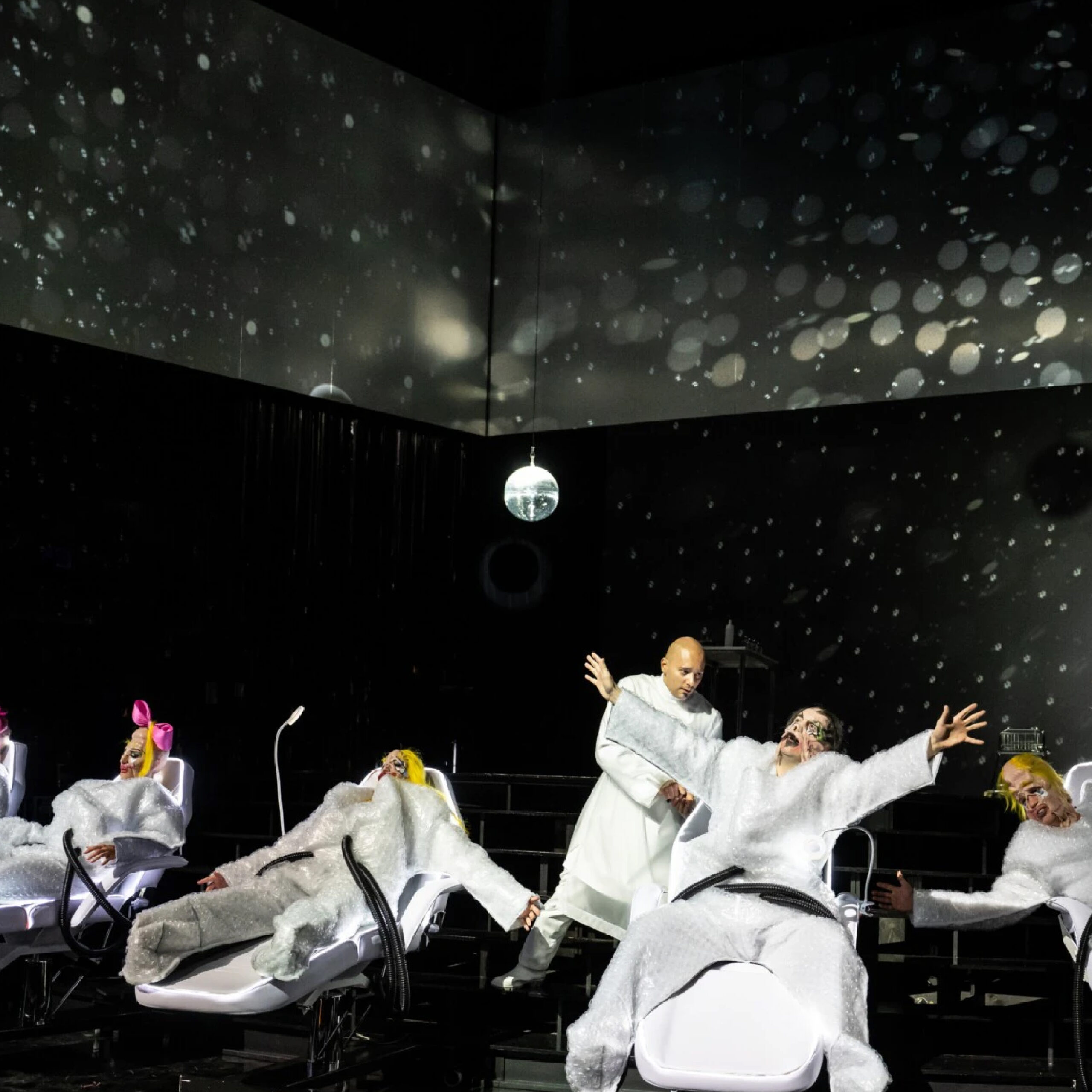
Shanul Sharma’s review on Concerti.de about Philip Glass’ Satyagraha in Hannover
At the Staatsoper Hannover, Philip Glass's opera "Satyagraha" becomes a spiritual oratorio for both the audience and the performers
At the end of the premiere evening of "Satyagraha" at the Staatsoper Hannover, the curtain rises not only for the ensemble but especially for one person: Gandhi actor Shanul Sharma, visibly moved by the music and the moment, kneels to accept his applause. The audience, equally deeply impressed by the seemingly simple yet emotionally intense music, enthusiastically celebrates what they have seen, heard, and experienced. "Satyagraha" is less a retelling of Gandhi's life and more a spiritual oratorio for his idea of nonviolent resistance. It emphasises the necessity of approaching one another through pain and suffering to draw wisdom from it. Philip Glass's music serves as the mantra, the medium, to convey this message.
But how can this timeless lesson be represented in an opera? In "Satyagraha," Glass originally selects three protagonists of peace politics of their time: Leo Tolstoy, Rabindranath Tagore, and Martin Luther King. Inspired by their example, Gandhi continuously develops his philosophy, with each act dedicated to pivotal moments of protest. Director Daniel Kramer, however, imposes cosmic scales on the scenario through tremendous leaps in time.
A Meaning-Preserving Directorial Concept
In three episodes, Kramer allows the Hinduism-inspired thoughts of death and rebirth to evolve like a leitmotif: First, in the Mythical Age, where Gandhi dies through the warrior god Arjuna and prepares for his reincarnation, then in the year 2048, when Earth is becoming increasingly uninhabitable and Gandhi stands with the wretched against a few wealthy. Finally, in the future, in 3048, the few survivors on the Moon are miserable beings, dependent on medicine, care, and the help of Gandhi's third reincarnation. An epilogue is dedicated to a new species 65 million years later. They too fail to learn and express themselves through violence. Yet the soul of Gandhi, continuously wandering, pacifies them, and after many lives, it merges into the Divine.
Kramer's directorial concept finds an innovative and coherent approach without undermining the original meaning of the work. The selected images of senseless war, selfishness, and resource waste, along with dystopian visions of migration to other celestial bodies and eventually the emergence of a new species—enhanced by the video screen, for which Chris Kondek is responsible—bite with irony but are by no means ridiculous. Thus, the audience sees on the screen sometimes ruins of destroyed cities, sometimes paradise—especially the pernicious media narcotic used by the wealthy to subdue the working masses: images of an unspoiled nature. Who wouldn't be touched through the big eyes of Bambi and Thumper?
The Diversity of Seemingly Simple Forms
From passionate suffering at death, over manic ecstasy during rebirth and manifestation, to warlike hostility. Glass's impressive music, despite its seemingly simple melody and harmony, is nuanced. Congenially, how well the shown matches with the musical forms. Especially, the timelessness in music and action find an astonishingly good fit. Yet the overwhelming emptiness of the strongly periodic music needs to be filled with life. Masaru Kumakura proves to be the right one for this. With youthful freshness and rhythmic discipline, the native Japanese keeps the music alive, which could easily slide into uninspired agreeability. With ease, he creates a refreshingly vivid play of colours, so that both he and the Lower Saxony State Orchestra were rightly celebrated.
And according to the directorial shift from biographical elements to the philosophical idea itself, the characters, even tenor Shanul Sharma as the celebrated Gandhi, play only a subordinate role. Rather, all together recite the messages written in Sanskrit, thus elevating the Staatsopernchor to a level equal to the other soloists, a role akin to a marathon, which—at least at the premiere—was filled with overwhelming passion, transforming the Staatsoper Hannover into an ashram of musical uplifting.
by Patrick Erb on Concerti.de
